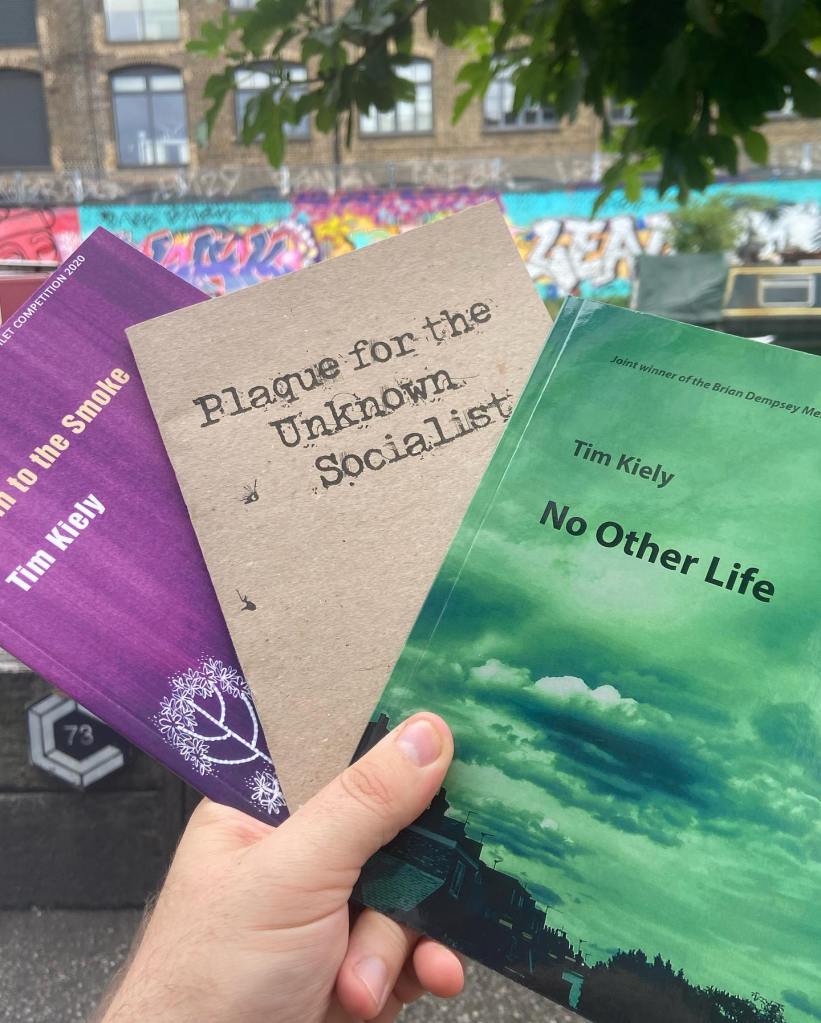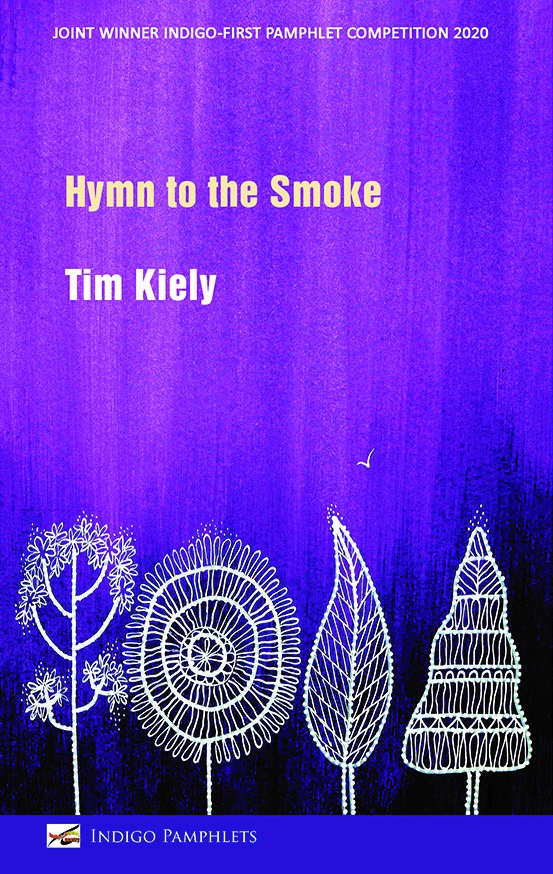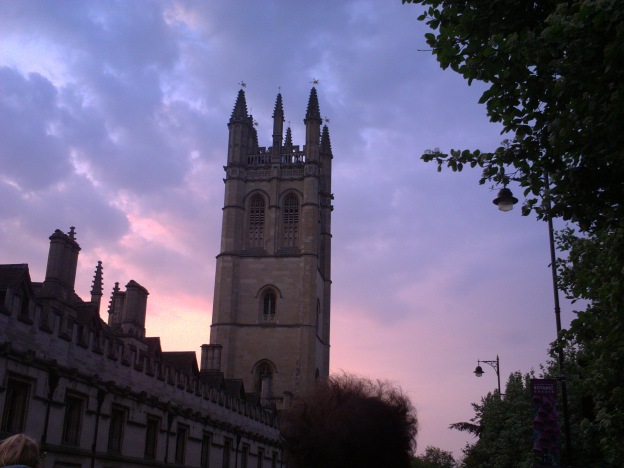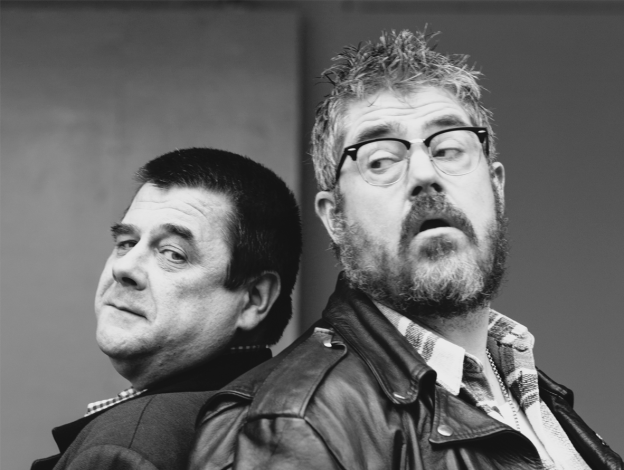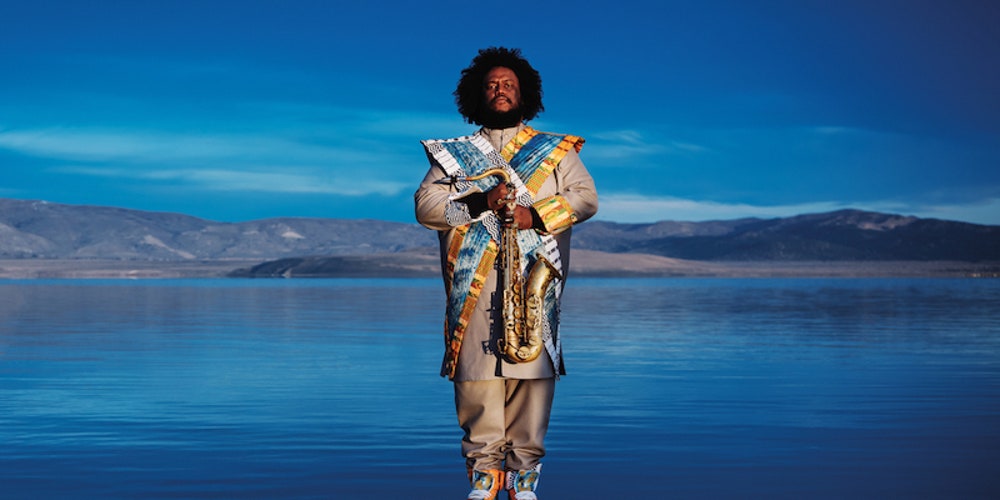Oxford is supposed to be drab in February.
Pretty much everywhere is supposed to be drab in February, but Oxford actually warns you about it. The student prospectus I was given to read described the weeks around Hilary Term as the ones where the city would least stir your soul; where you would wake up every morning and process through the damp corridors of ancient stone on your way to somewhere or other, and feel no special spark as you did. It would be cold, it would be bleak, and the communal showers would be especially unpleasant of a morning.
Turl Street, on a February morning in 2021, should still feel less dead and less cold than this.
I have not been a student for nearly a decade now. I am back here working as a barrister, on a trial currently taking place at the Combined Court building just south of Christ Church. It’s the first time I have ever been away from home on consecutive nights for a case, and the B&B where I’m staying doesn’t have the facility to cook breakfast. I am currently camped outside the Missing Bean, waiting for a black Americano. Every other place in the street is closed.
It is just after opening, and the door is open so that customers can approach the counter, but come no further. NHS Test-and-Trace QR codes are stuck to the front window, next to the Keep Cups and a few old advertisements.
On the way here I passed what I am sure were trucks still making deliveries to the Covered Market, even though it seems like that is mostly closed too. I know; I checked, making sure that I didn’t have the option of a sweet, greasy cooked breakfast at Brown’s before I came here.
I am outside, in the rain, while my coffee is made. I remember sitting down at a breakfast table. I check my phone – I don’t need to be at work for an hour.
As the proprietor hands me my coffee I pay and wish them “Good luck”. They thank me. In the circumstances it’s not clear how much they might need it.
*
Last night, as I checked in and unpacked my suitcase, I had to remind myself that none of the rituals of being here normally would be available to me this week. No sitting in the pub with a pint after work; no browsing the shelves of local bookshops; no sticking my head round the door of local chapels without pretending to be a worshipper, Test-and-Trace app at the ready. When I went outside to get food that night. I thought how the Deliveroo-cyclists, gliding up and down Cornmarket Street, were now the most visible population of Oxford. Apart from the homeless people.
*
This morning, at the bottom of Turl Street the rain waters wash down the pale façade of All Saints’ Church. Its round-headed windows and classical spires are, the nearby sign tells me, the product of a restoration in the 18th Century, after its tower collapsed. It’s easy to assume, at first, that everything around here has always been there, with no interrupting disaster.
I walk a few minutes down the High Street, further away from the court, and hope that Taylor’s might still be doing takeaway sandwiches. No – they join the other casualties: the Ivy; Ede and Ravenscroft; the Oxford University Press bookshop; all closed, and with no prospect of opening soon.
Yesterday in court my opponent and the other staff had wondered how many of these places would survive to next year.
I make it as far as the University Church of St. Mary the Virgin before I think of turning back. My spirits are lifted, for a moment, by the sight of a fluttering rainbow flag for LGBT+ History Month, but my excitement doesn’t last. It sits over Oriel College, and in a portal facing the street there remains the statue of Cecil Rhodes, over seven months on from when the college authorities all but agreed with protestors that yes, the man who once urged the Cape Parliament to think how thankful we shall all be if “the whites” kept “the natives in their proper place” should probably not have a statue there anymore. A Latin inscription continues to proclaim his ‘generous munificence’ to the High Street.
The ‘Rhodes Must Fall’ campaign had not yet started when I was a student. I often regret missing out on the fun. For now, Rhodes glowers from behind a wire mesh, a rainbow fluttering just over his head.
I turn back to the University Church. When I first came here over a decade ago, prospecting for my future college, it was spring and the front of the church was violent with pink blossom. I can see the buds on the nearby branches packed tight, spear-tips quivering with water droplets.
I imagine what will happen when spring arrives.
*
On my second night in Oxford, I take a walk. Even if nothing else happens, there’s something about putting on my long coat and hat, and finishing it off with a mask, that gives me a kind of thrill after all day spent in rooms of assorted cream colours, feeling the hours grind by.
It still surprises me how much else you can do when you’re still at work, waiting for something important to happen. At some point I began reading scans of superhero comics, and a dream of freedom ran through me. I have always been a fan of the genre.
I open the front door of the hotel and step out – I almost add, to myself, ‘on patrol’.
I don’t make a particularly good masked hero. I pass by a number of doorways filled with sleeping bags, the shapes of various human beings just visible under rolls of fabric. On an impulse, I slip someone a fiver. I don’t understand a single word of his response.
Even without anywhere to be tonight, the walk does me good. In a city that is now mostly, disturbingly quiet, the night at least provides an opportunity for those who are looking to see signs of life. Lit windows shine out onto the streets, from interiors where students, professors and other residents carve out their lives in a safe space. If I pass near enough to some windows I can make out additional glows from screens, as people do what they can to stay connected, to carry on their lives in some other spaces. Occasionally I can see on their TV or laptop, whatever they are watching to stay occupied. Others are typing on keyboards or touch pads. Some hold their devices close while they talk. The just exchange their messages, and between their points of light, I can walk.
Holywell Street has student accommodation on both sides, snaking down behind New College towards Magdalen. It’s a route I got used to taking in a hurry whenever I was coming to or from the English Faculty.
That night, as I walk, it’s full of flags – not just the rainbow flags that have become a more common sight on my travels, but the whole panoply of queer identity: the blue, pink and purple bi-pride flag; the trans-pride flag with its white stripe shining through the night like a smile. There is even, for whatever reason, a Romanian flag hung up near the street’s end. I can understand wanting to be a part of the display. I smile as near the bottom of the street and see someone hauling what looks like an Irish tricolour back into their room.
Meanwhile, at eye level, there are signs in some windows, variations on a theme. ‘Trans Rights Are Human Rights’. ‘You Can’t Take My Trans Pride’. I have seen many like them, and would even expect them, but something about them still lifts a load from my shoulders. I wonder, with the way the signs are arranged, if a parade has not been through here recently. It’s not as if people would need an excuse. Lockdown wouldn’t necessarily be an issue.
I remember being in Trafalgar Square last year; a black-gloved fist in the air; thunder. I remember seeing superheroes.
Occasionally people pass by talking, but mostly I have the streets to myself. I decide to loop down to the High Street and head back. As I look up, over the towers of New College, I can see a band of stars in the black.
*
It takes until the end of the week for the clouds to clear and for me to see the sky in daylight.
As my case goes on, there are fewer opportunities to leave the courtroom and take it all in, even as the evidence draws to a close and the jury retire to deliberate. It takes them a full two days to reach a verdict, much longer than I had expected going in. I know I should be grateful they are taking their time.
When I can, I take myself away and make sure that what I first thought was true is still the case. Again, even when I expect to see them, something still stirs and lifts inside me whenever I do. On my way to court each morning I get my coffee from the Missing Bean, wish the staff “Good luck”, and count the flags as I make my way through the narrow streets. They are more numerous than I remember, fluttering through the rain still dusting the High Street, shining as I pass them: over Oriel; over Queens; over Brasenose; at the crossroads over Cornmarket Street.
Wadham have gone one step further, with a flag incorporating black and trans pride. But it’s not quite that sight that rounds off my trip.
By the end of the week, it’s not raining anymore. I decide to take my walk over lunch, cutting across Christ Church meadow and up past the swollen Cherwell. Its surface is sluggish, but seething, as currents tug within it like muscles.
I used to think that this was a place where I could come and things would always look the same. I would come here to lie on the green banks, forgetting that a world was happening elsewhere. Today, when I look over the cricket fields and the botanical gardens I catch the slightest flash of something else, and I am glad the place no longer seems like this.
Oxford is supposed to be drab in February. But underneath it a city is preparing for the sun, and there are signs of what is waiting. I step onto the High Street north of Magdalen Bridge and feel the last piece click into place. I think about my case and am surer than ever that the jury will do the right thing.
Over the battlements of Magdalen I can see a rainbow flag, underneath a pink and blue sky. A single light glows in the nearest window.
I imagine what will happen when spring arrives.


